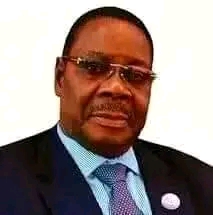As government spending tightens, Court battles and alleged political influence in security forces expose fragile institutional trust
By Burnett Munthali
Malawi is confronting a critical period marked by economic strain, legal controversies, and rising concerns over political interference in state institutions. Recent government decisions to freeze procurement of high-value assets, alongside public legal disputes and allegations of partisan influence within security agencies, underscore a growing test of accountability, transparency, and institutional integrity in the country. These overlapping challenges reveal the pressures facing the ruling Democratic Progressive Party (DPP) and raise pressing questions about the durability of Malawi’s democratic governance.
Malawi Freedom Network Urges President-Elect Mutharika to Pardon Petty Offenders and Investigate MCP Corruption
The government recently circulated a directive from the Office of the President and Cabinet (OPC), signed by Chief Secretary Justin Saidi, imposing a moratorium on the acquisition of new motor vehicles and other significant assets by all public institutions. Effective from March 31, 2026, at the conclusion of the 2025/2026 fiscal year, the moratorium halts major purchases until further notice. Officials say the move is intended to rein in public spending, encourage fiscal discipline, and ensure that available resources are used efficiently.
Lobin Lowe Implicated in Fertilizer ‘Butchery’ Scandal
The legal basis for these controls lies in the Public Finance Management Act, 2003, which gives the government authority to regulate expenditure, monitor compliance, and safeguard national resources. Sections 4 and 5 of the Act specifically require that public funds be managed prudently, and spending adheres to approved budgetary allocations. Malawi has previously implemented similar austerity measures, particularly in the late 1990s and early 2000s, as a response to budgetary pressures. Today, rising inflation, higher commodity prices, and constrained fiscal resources make such measures both necessary and politically sensitive.
Investigating the Wealth of President Chakwera’s Son
At the same time, high-profile legal cases are raising concerns over the limits of state authority and the protection of citizens’ rights. Prophet Shepherd Bushiri has taken legal action against former Director of Public Prosecutions (DPP) Steven Kayuni, claiming that a directive prevented his five-year-old child from receiving urgent medical care in Kenya. Bushiri alleges that Kayuni acted on instructions from South African authorities while representing the State of Malawi, effectively blocking travel for critical treatment.
This case highlights constitutional and human rights concerns under Article 13 of the 1994 Constitution of Malawi, which guarantees citizens the right to life, personal liberty, and access to health services. The Bushiri dispute underscores the delicate balance between state power and individual rights, revealing potential vulnerabilities in how legal authorities exercise discretion in matters that affect fundamental freedoms and welfare.
Kayuni becomes the first man to be sued in Chakwera’s government
Allegations of partisan influence within security institutions have further heightened scrutiny of state governance. Reports indicate that certain Malawi Congress Party (MCP) officials, with the support of sympathetic police officers, may have financially aided MCP-aligned individuals facing criminal charges in Lilongwe. Dr. Jessie Kabwila publicly denied any connection between the party and the suspects, asserting they were DPP members in conflict, yet eyewitness accounts suggest her active support in court.
These incidents must be viewed against the historical expectations of neutrality for Malawi’s security forces. Since the introduction of multiparty democracy in 1994, the Malawi Police Service and the Malawi Defence Force have been mandated to remain politically impartial under the Police Act, Cap. 41:01, and the Defence Act, Cap. 41:02. The Police Act, Section 4, emphasizes officers’ duty to uphold law and order without bias, while the Defence Act enforces strict non-involvement in political matters. Despite these legal safeguards, history shows that political interference in the security sector has periodically undermined public confidence in both institutions.
Who Is Behind Lowe’s K30 Billion Scandal? AIP Funds Shared At Barkaat Butchery
Adding to public unease, concerned citizen Elizabeth Kaliza Banda of Area 51, Lilongwe, has called on the newly appointed Army Commander General George Jaffu and Police Inspector General Richard Luhanga to publicly apologize for perceived manipulation of the security institutions by MCP politicians. She claims that senior officers have been used to damage the reputation of the Army and Police, suggesting a deviation from the professional neutrality required by law. If these allegations are verified, they point to a serious challenge to institutional credibility and public trust.
The combination of stringent fiscal measures, high-profile legal battles, and allegations of political interference illustrates a fragile governance environment. While the moratorium on asset procurement is designed to control expenditure, improper implementation could disrupt public services. Meanwhile, cases like Bushiri’s expose gaps in how constitutional protections are enforced, and partisan interference in security services threatens the principle of impartiality essential to law enforcement credibility.
Malawi’s political history reveals that such tensions are not new. During President Joyce Banda’s tenure (2011–2014), austerity measures sparked resistance from public agencies and political factions, illustrating the challenges of enforcing fiscal discipline amid polarized governance. Similarly, legal disputes involving politically exposed figures have tested the judiciary’s independence, reinforcing the need for robust safeguards to protect citizens’ rights.
Going forward, several measures are essential to restore confidence. Strict enforcement of the expenditure moratorium is necessary, accompanied by regular audits from the National Audit Office, as outlined in Section 187 of the Constitution. The judiciary and DPP must operate independently, ensuring that legal directives do not infringe on constitutional rights. Clear accountability mechanisms are critical to prevent abuse of authority and maintain public confidence.
Equally important is safeguarding the political neutrality of Malawi’s security institutions. Compliance with Sections 4 and 5 of the Police Act and Sections 3 and 4 of the Defence Act should be reinforced through training programs, internal disciplinary measures, and transparent reporting. Establishing independent oversight committees, including civil society representatives, legal experts, and members of Parliament, could provide additional checks and public accountability.
From a socio-political perspective, these challenges reflect broader citizen frustrations regarding governance, transparency, and accountability. Perceptions of corruption, favoritism, and administrative inefficiency have heightened expectations for reform. Failure to act decisively risks social unrest and eroding confidence in democratic institutions, as past protests and political mobilizations have shown.
Malawi now stands at a pivotal moment, where fiscal prudence, constitutional rights, and security neutrality intersect with democratic principles. Expenditure control measures must be implemented transparently and efficiently. Legal disputes such as the Bushiri case underscore the need to safeguard citizens’ rights and limit state overreach. Allegations of political interference in security forces must be addressed decisively to preserve institutional trust.
The path ahead requires a comprehensive approach combining legal rigor, independent oversight, and civic engagement. Protecting democratic institutions, defending human rights, and ensuring professional security forces are foundational to Malawi’s stability. The coming months will test whether government policies, legal frameworks, and institutional reforms can restore public confidence or exacerbate political and social tensions.
Ultimately, Malawi faces the challenge of balancing fiscal responsibility with protection of citizens’ rights, ensuring the neutrality of security agencies, and reinforcing the integrity of national institutions amid a politically and economically constrained environment. The government’s response will determine both the credibility of its leadership and the resilience of Malawi’s democratic governance in the years ahead.





This piece shows how fiscal pressure and political maneuvering can shake people’s trust in institutions like the courts and security forces. I hope for transparent reforms and fair, steady governance.